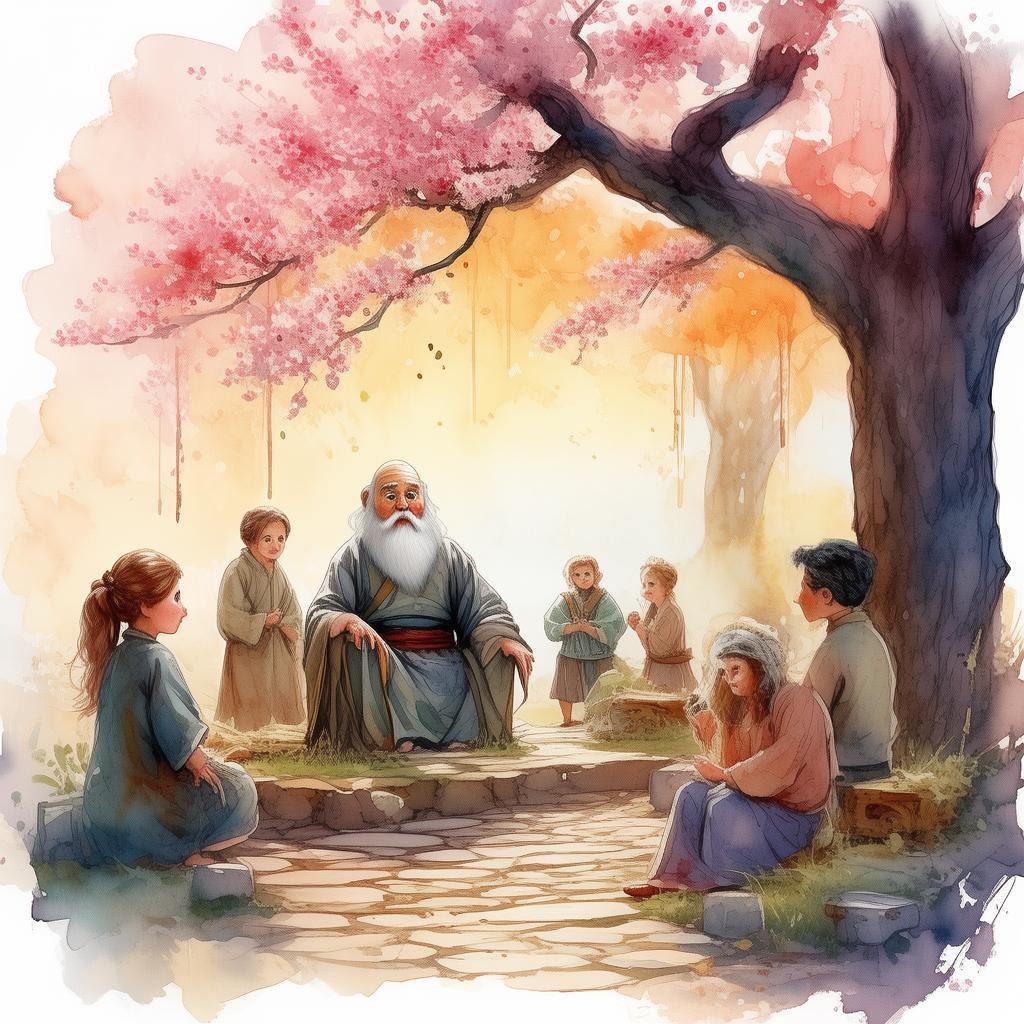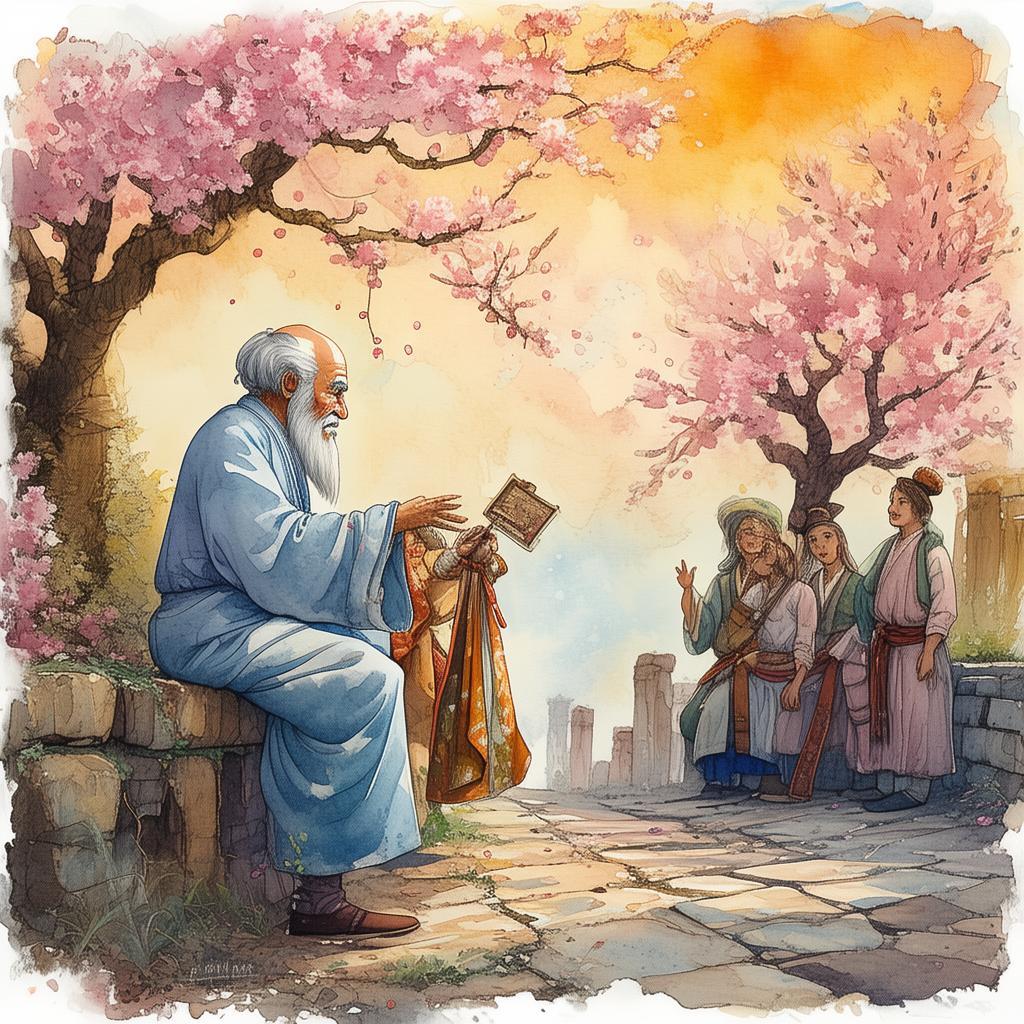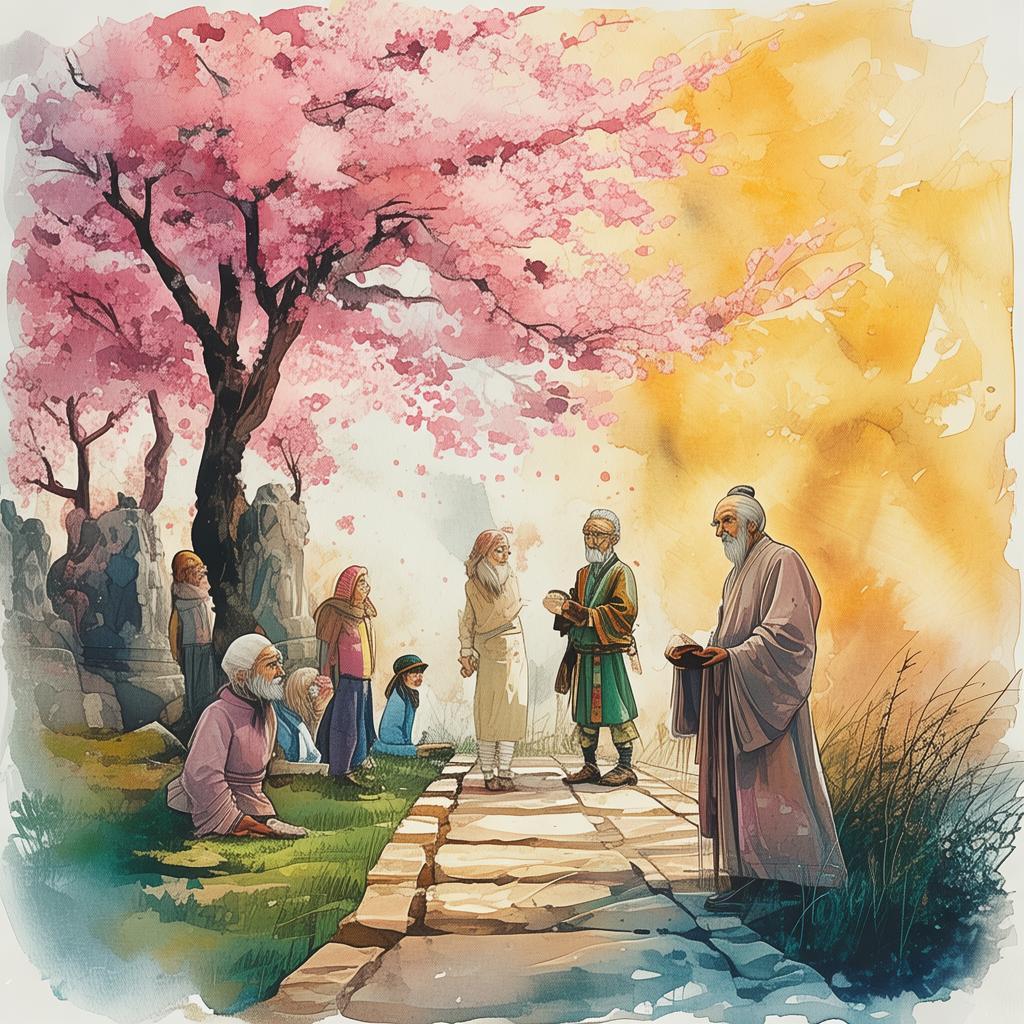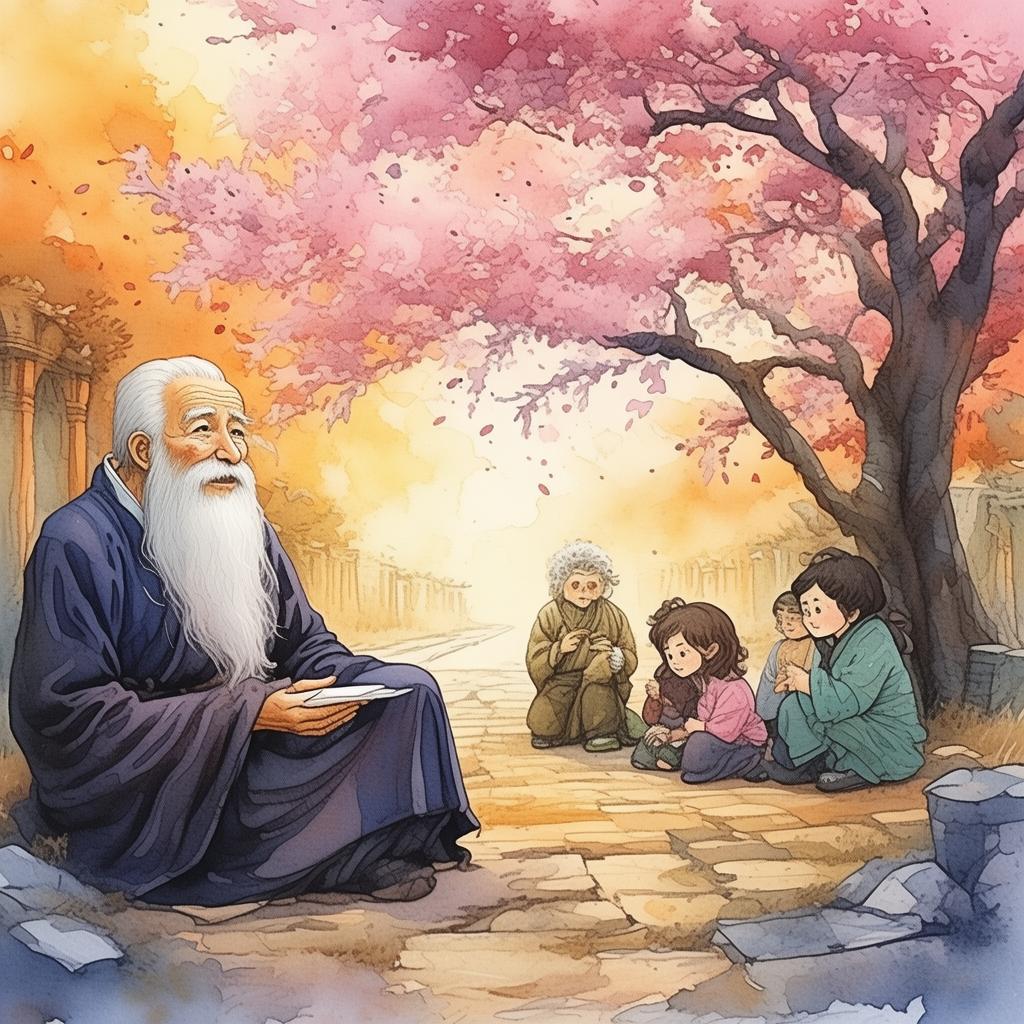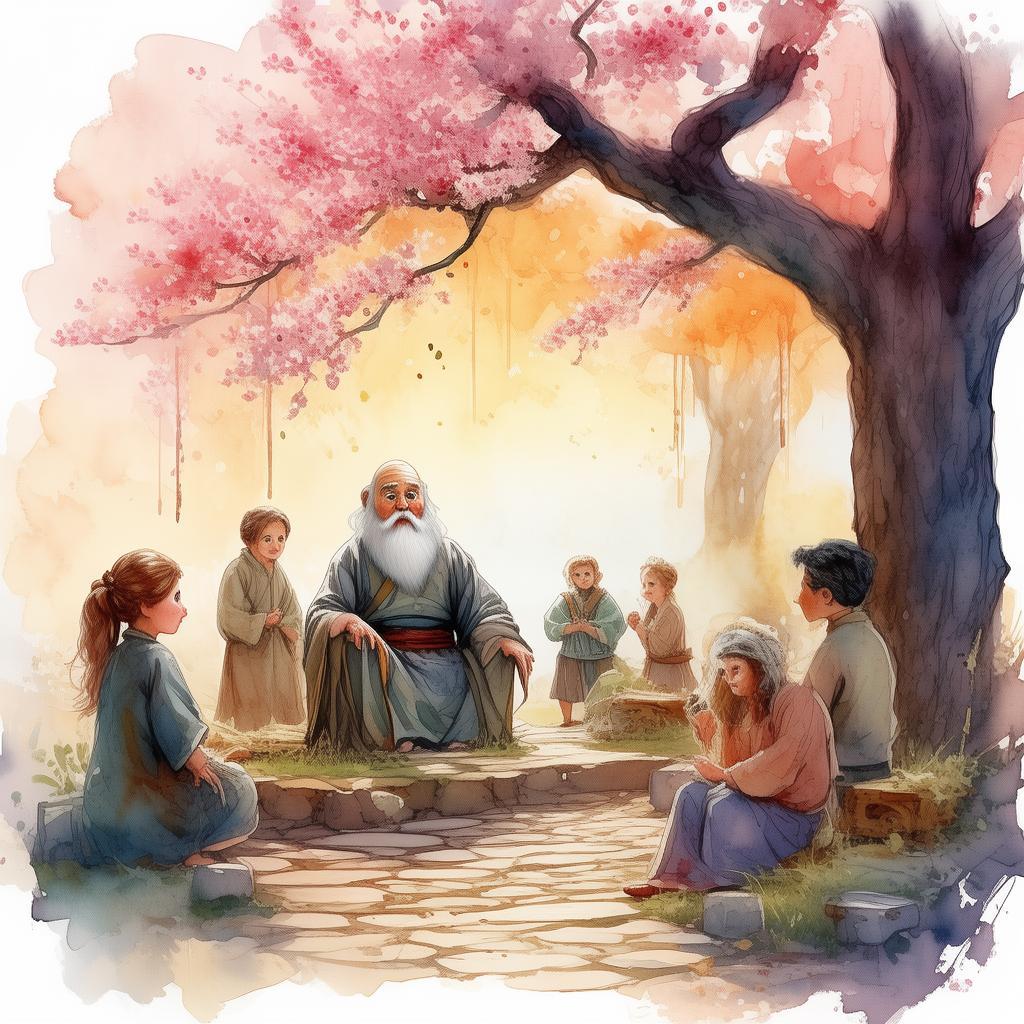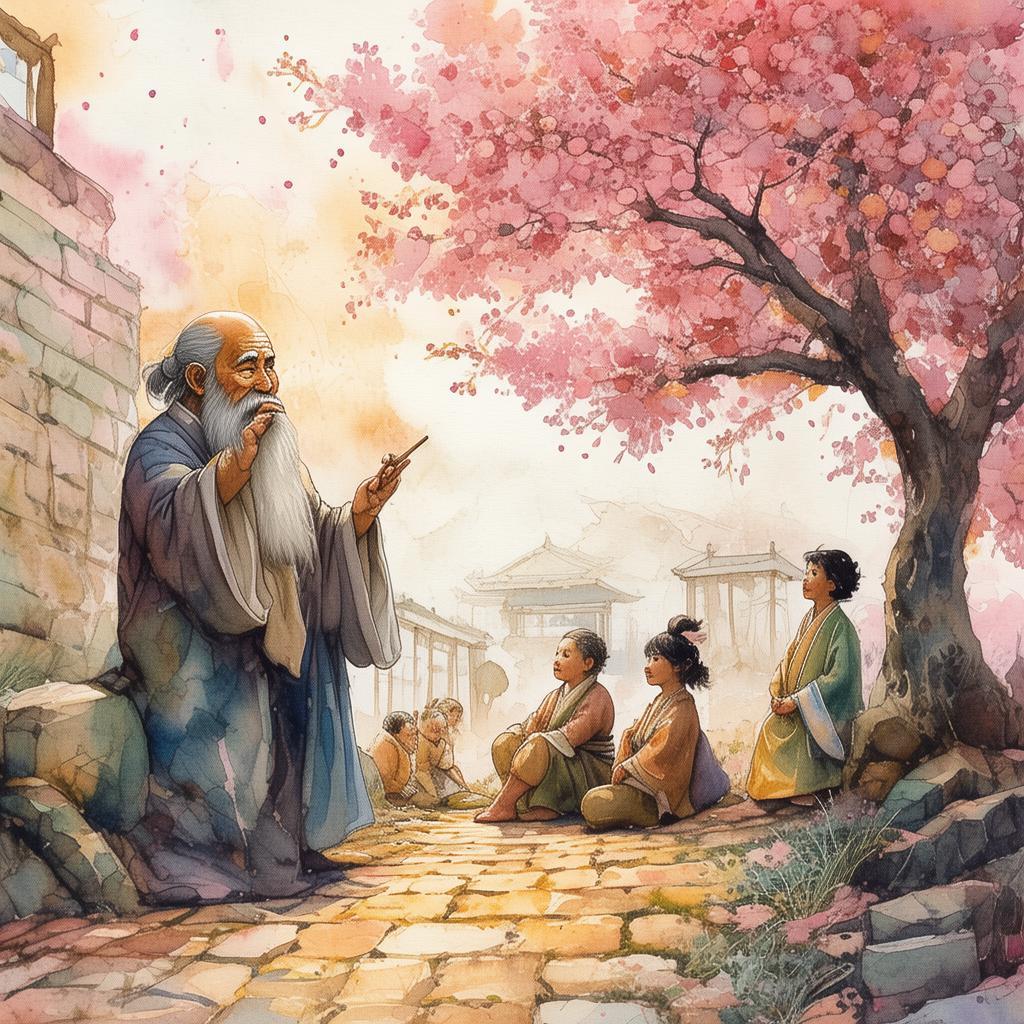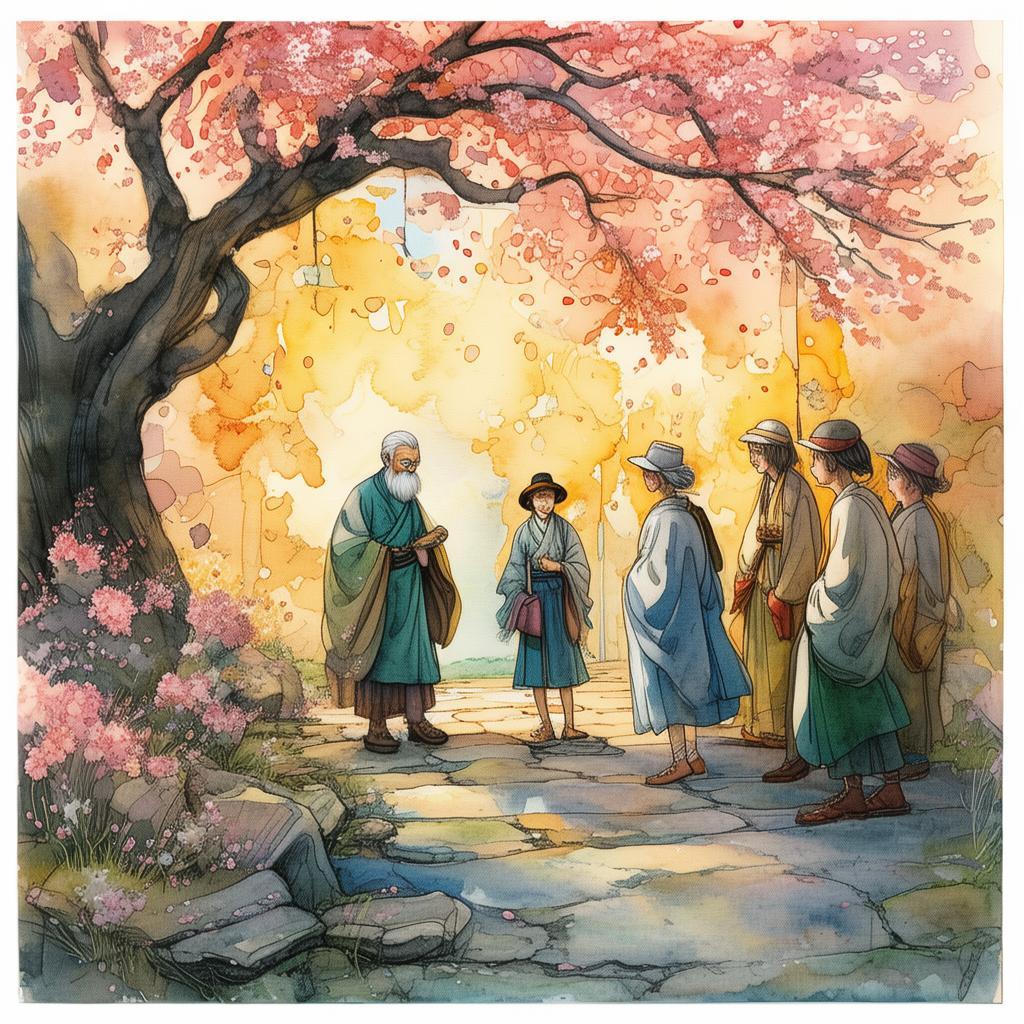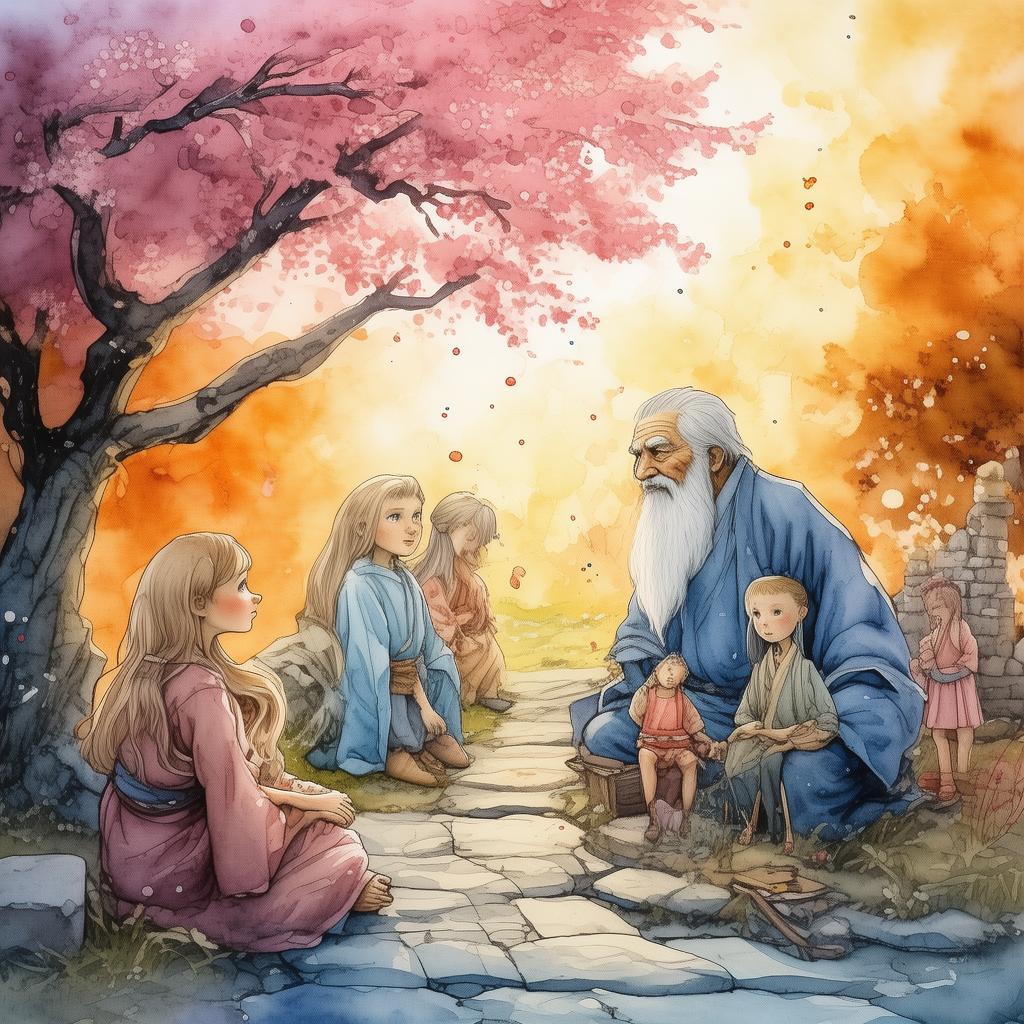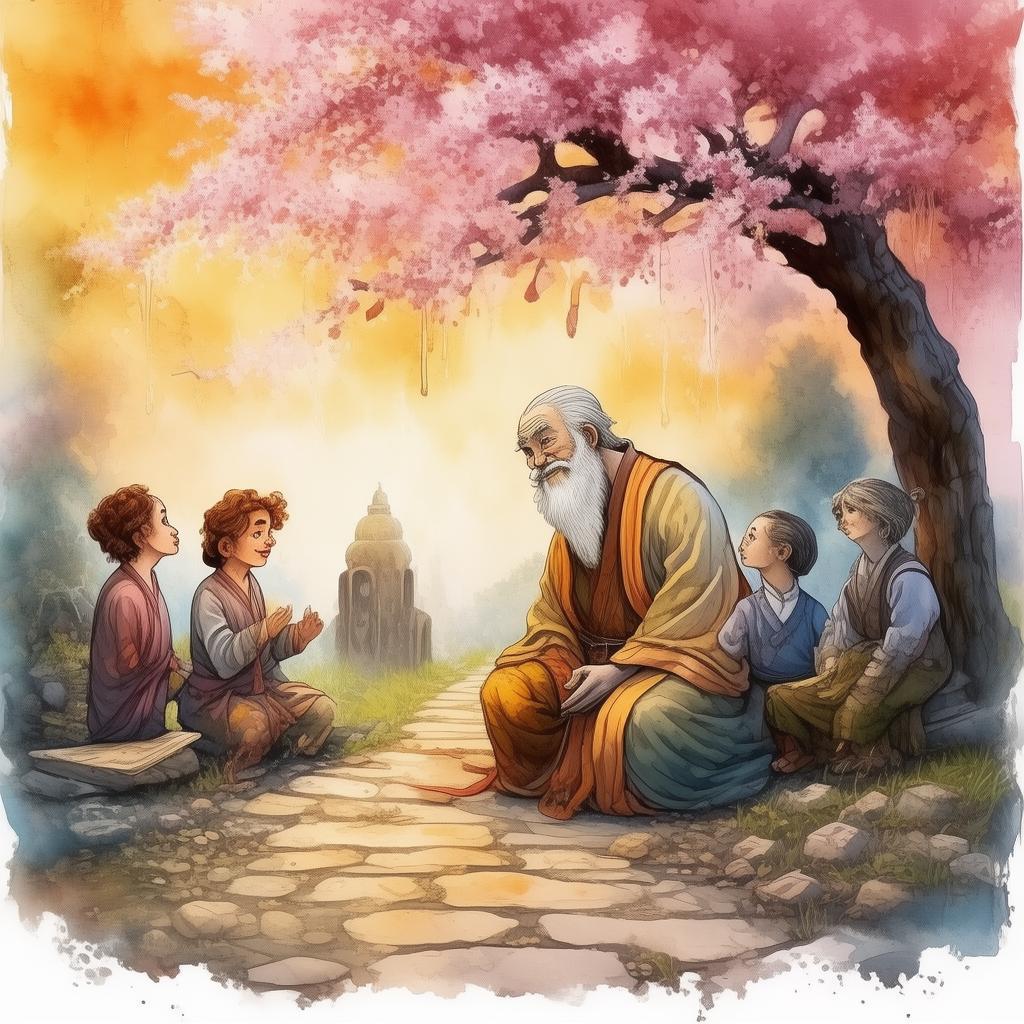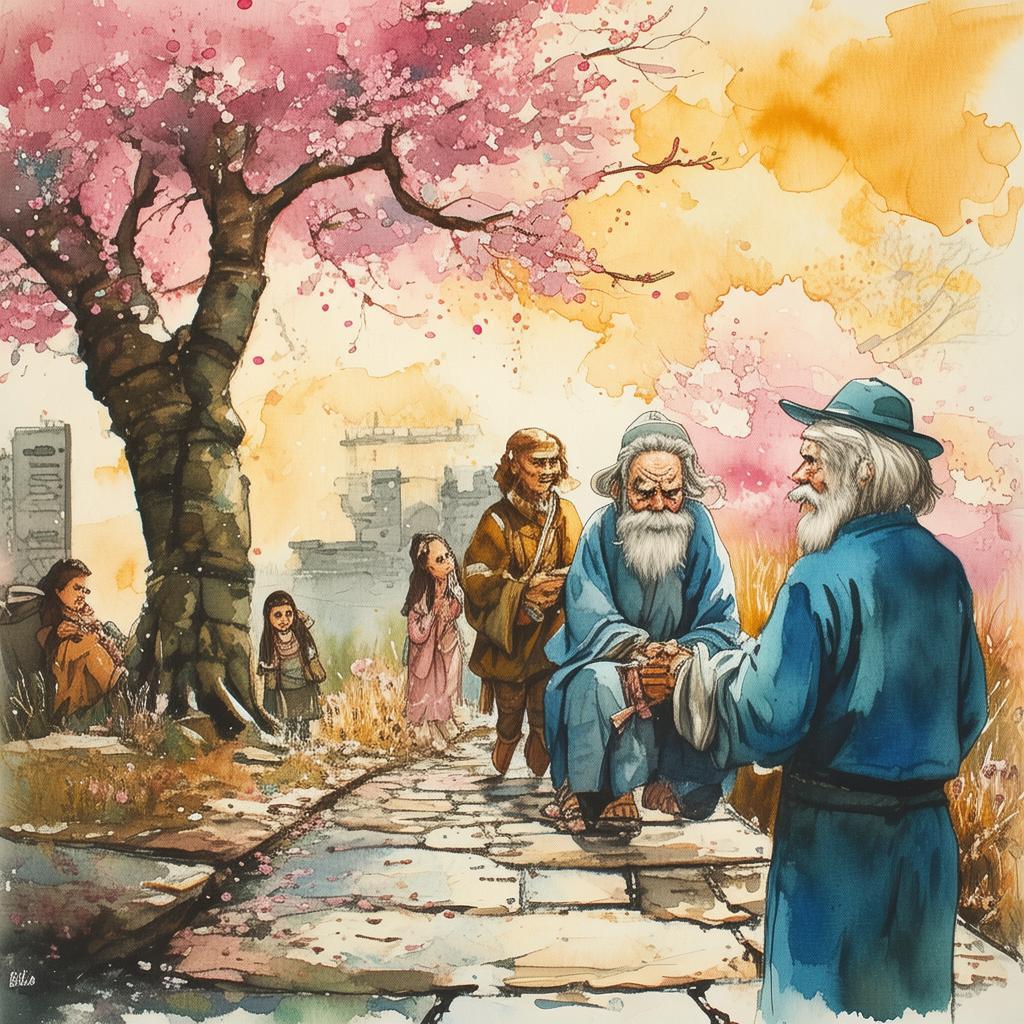The Zen Master's Empty Pot: A Journey to Enlightenment
In the serene and ancient Zen Garden, nestled between towering bamboo and the whispering leaves of cherry blossoms, there stood a small, unassuming teahouse. This was the abode of Master Kwan, a Zen master known far and wide for his wisdom and the profound insights he imparted through the ritual of the tea ceremony.
One bright morning, a young monk named Jin entered the teahouse, his eyes wide with a mixture of curiosity and reverence. He had heard tales of Master Kwan's mastery of the tea ceremony, a ritual that transcended the mere act of brewing and serving tea. It was said that through the ceremony, one could attain enlightenment and a deeper understanding of the world.
Master Kwan welcomed Jin with a gentle smile, his eyes reflecting the tranquility of the garden around him. "You have come to learn the secret of the tea ceremony," he said, "but remember, the true essence of the ritual lies not in the leaves, the water, or the pot, but in the empty space between."
Jin bowed in acknowledgment, but his mind was abuzz with questions. "Master, if the tea ceremony is about the empty space, then why do we use a pot to hold the tea?"
The master chuckled softly, his voice as gentle as the wind that rustled through the bamboo. "The pot, my young friend, is a metaphor for the mind. Just as the pot must be empty to hold the tea, the mind must be empty of preconceptions and desires to truly understand the essence of the tea ceremony."
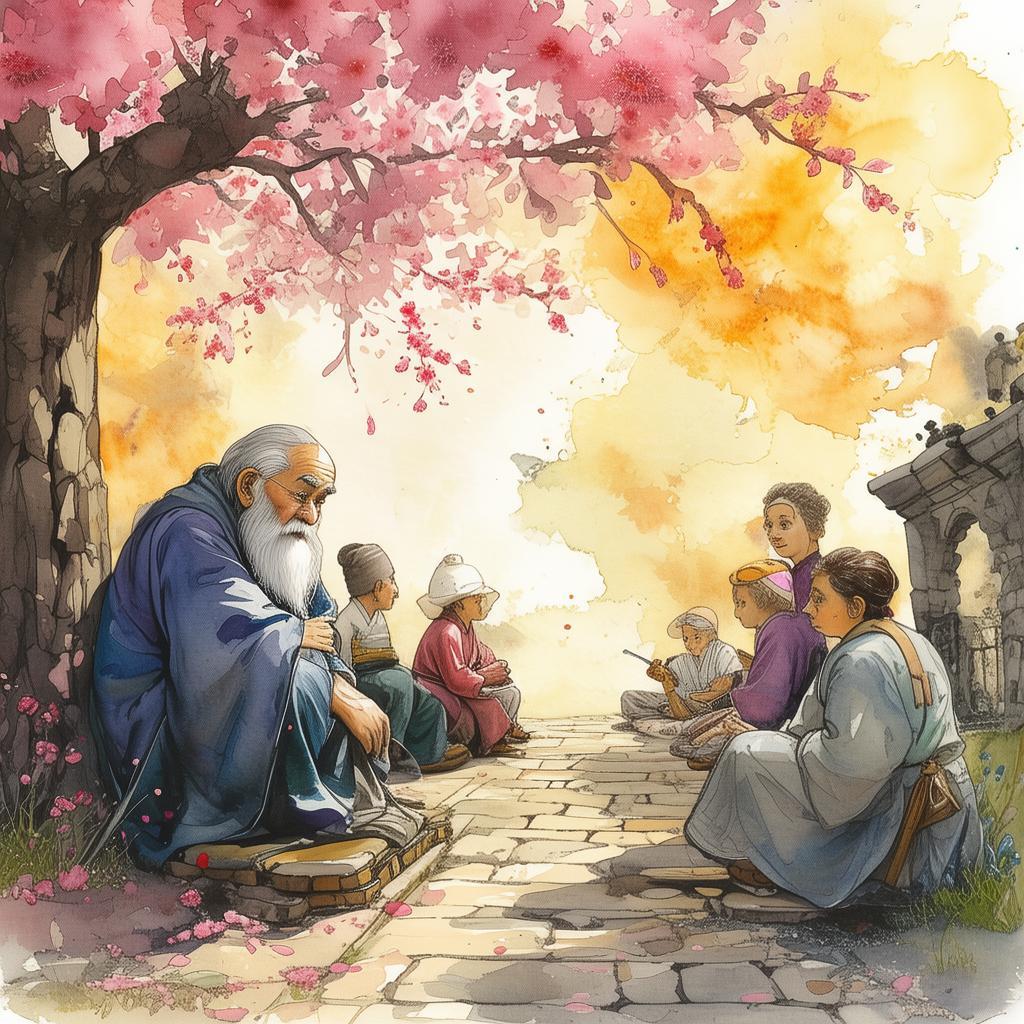
Intrigued, Jin decided to participate in the tea ceremony. The master began by carefully selecting the tea leaves, their vibrant green hue a stark contrast to the tranquil setting. He then took a pot, its surface smooth and unadorned, and filled it with water from a nearby spring.
As the water heated, the master explained the importance of each step. "The water is the lifeblood of the tea, as the mind is the lifeblood of our understanding. It must be pure and free from distractions to transform the leaves into a beverage that can bring peace and clarity."
The water began to bubble, and the master reached for a bamboo whisk, its delicate movements a dance of rhythm and control. "The whisk, like the hand of the practitioner, must be steady and patient, for it is the whisk that brings the tea to life."
Jin watched in awe as the master poured the tea into a bowl, its surface mirroring the gentle movements of the bamboo whisk. "The bowl, too, must be empty to receive the tea, just as the heart must be open to receive wisdom."
As the master handed Jin the bowl, he spoke again. "Now, taste the tea, but do not let your mind be consumed by the flavor. Instead, feel the space between the flavor and the taste, the space that is the essence of the tea."
Jin took a sip, the tea's warmth spreading through his body. He closed his eyes, focusing on the taste, but more importantly, on the space between the taste and the sensation. He realized that the tea was not just a beverage, but a way to understand the emptiness that lay within him.
The master continued, "The Zen Garden, with its carefully placed rocks and meticulously raked sand, is a physical representation of the empty pot. The rocks are the mountains, the sand the water, and the space between them is the essence of the garden, the essence of the tea ceremony."
Jin looked around the garden, taking in the beauty of the arrangement. He saw the empty pot in the garden, the space between the rocks and the sand, and understood that it was this space that allowed the garden to breathe, to be alive.
The master concluded, "In life, as in the tea ceremony, it is the empty space that allows us to grow, to change, to become. It is the space between the thoughts, the emotions, the experiences that gives us the freedom to be present, to be at peace."
Jin left the teahouse that day with a deeper understanding of the tea ceremony and life itself. He realized that the 'Empty Pot' was not just a metaphor for the mind, but a reminder to embrace the emptiness within and without, to find the space that allows us to be truly alive.
As he walked back through the garden, Jin felt a sense of peace and clarity that he had never known before. He understood that the true essence of the tea ceremony was not in the tea itself, but in the space between the tea, the pot, and the heart of the practitioner. And with this understanding, he knew that he had taken a step toward enlightenment.
✨ Original Statement ✨
All articles published on this website (including but not limited to text, images, videos, and other content) are original or authorized for reposting and are protected by relevant laws. Without the explicit written permission of this website, no individual or organization may copy, modify, repost, or use the content for commercial purposes.
If you need to quote or cooperate, please contact this site for authorization. We reserve the right to pursue legal responsibility for any unauthorized use.
Hereby declared.
